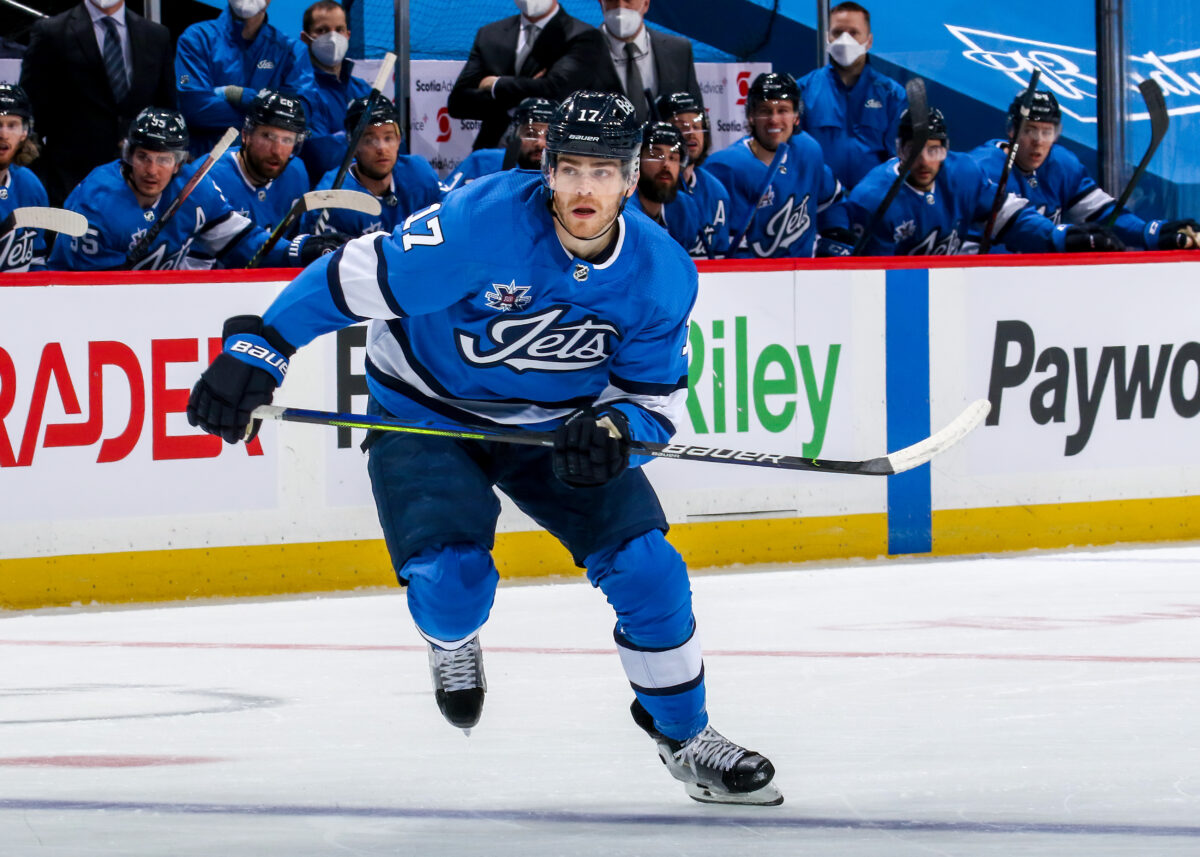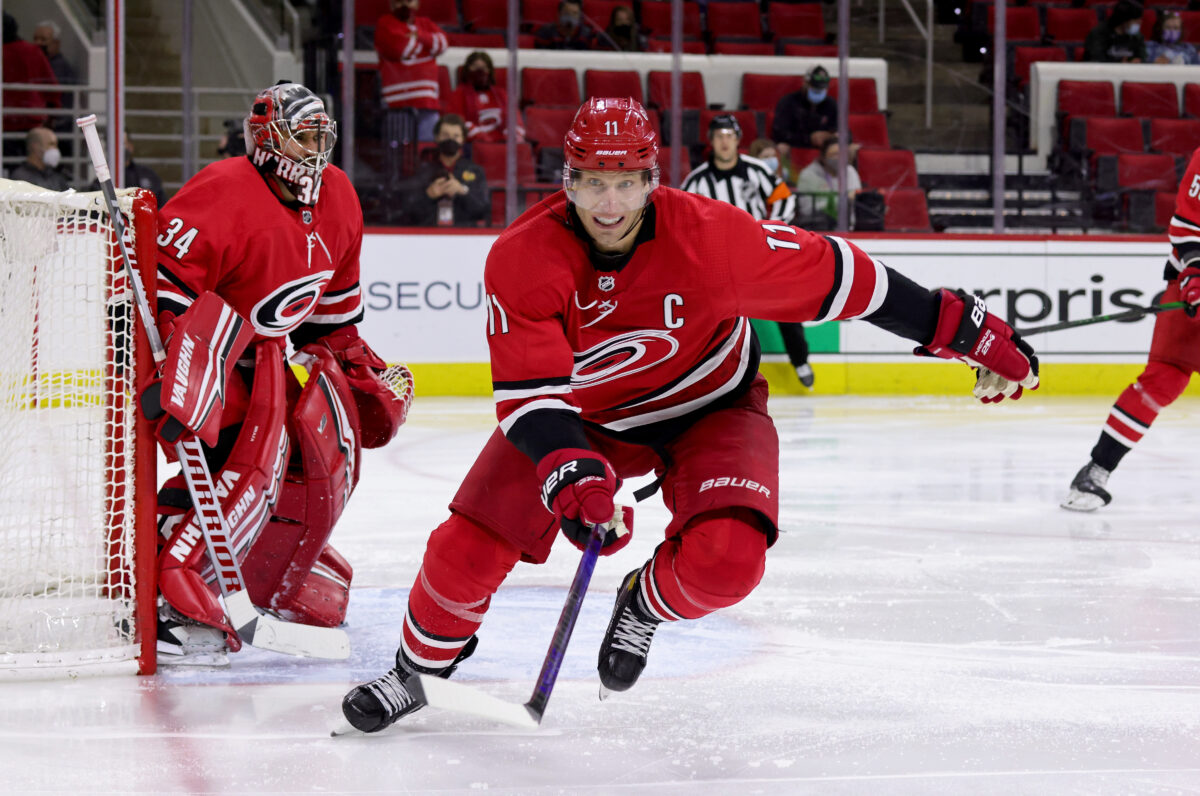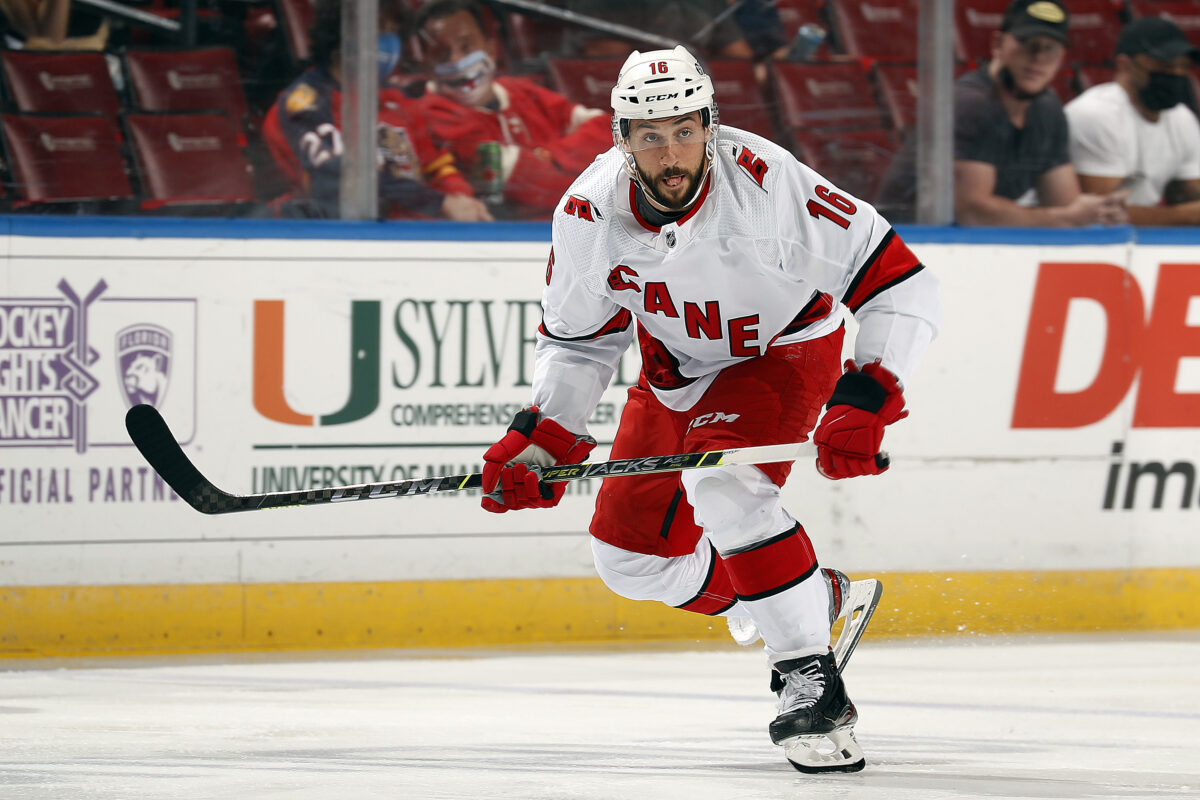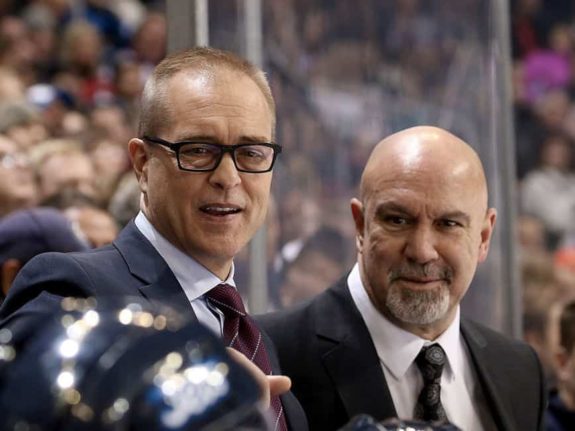The Winnipeg Jets’ penalty kill continues to be a massive issue, and is mostly just killing their chances to win games.
Penalty Kill Jets’ Biggest Issue Through First Third of Season
Through their first 25 games of 2021-22, the Jets’ penalty kill is operating at an abysmal 66.20 per cent efficiency. Entering play Thursday, that was second-last in the NHL to only the Vancouver Canucks.
The Jets have given up 24 power play goals, which again, is second-worst to only the Canucks. They have given up at least one power play goal in 14 games, and multiple power play goals in eight games, including their last two.

The penalty kill got off to an awful start as they gave up a whopping 10 in their first five games of the season. As a result of that bad start, the percentage will never be top-10, but they haven’t been very good in the past 20 games, either.
The Jets have had a perfect kill in back-to-back games only three times, and have never had a perfect kill in three straight.
Last Two Contests Perfect Example of PK Problems
Home games Sunday against the Toronto Maple Leafs and Tuesday against the Carolina Hurricanes are perfect examples of the Jets’ pervasive PK problems.
Although the Jets won the highly-entertaining and gritty contest against the Leafs 6-3, their failures to kill penalties allowed the Leafs to tie the game in the first and get back into it in the second. Up 5-1 in the middle frame, the Jets were called on back-to-back infractions (Dominic Toninato for a hook and Blake Wheeler for a pointless trip in the offensive zone) and Auston Matthews quickly made them pay for their transgressions with a scintillating snipe.
The power play goal gave the Leafs the momentum, and Ondrej Kase scored less than two minutes later to draw the Leafs within two.
Related: Jets’ Clashes With Canadian Teams Are Marquee Matchups Again
On Tuesday, the Jets were dominated in the first period by an extremely speedy Hurricanes squad and fell behind 2-0, but found their legs in the second and tied the game on goals by Nikolaj Ehlers and a highlight-reel, between-the-legs effort by Pierre-Luc Dubois.
But toward the end of the period, Josh Morrissey took a cross-checking penalty and Martin Necas took advantage of their frazzled and disorganized kill by scoring a dagger-to-the-heart goal with just 20 seconds left in the frame.
In the third, Vincent Trocheck scored at 3:06 with Adam Lowry in the box for holding to extend the lead to 4-2, making a third period comeback bid much more difficult.
Passive System, Not Personnel, Is Most to Blame
The Jets’ penalty kill personnel is good — with strong defensive forwards in Andrew Copp and Adam Lowry on unit one and Dominic Toninato and Paul Stastny on unit two — and a number of more-than-capable defenders, including top-four talent Josh Morrissey and proven analytics darling Dylan DeMelo.
But the personnel is being done a disservice by a terrible system and strategy. They get hemmed in extremely often because the strategy is passive to the degree of being comatose.
Playing a 1-1-2 system, the Jets collapse into a small box in the middle of the ice in an attempt to discourage cross-crease passes and to block shots. Defenders do not stand directly in front of the net in order to not get disrupt Connor Hellebuyck or Eric Comrie’s line of site.
They do not pursue the puck carrier at all, generally staying mainly stationary. While they may prevent some cross-seam passes, their lack of aggressiveness allows opposing power plays to cycle the puck unimpeded around the outside and creep in closer and closer with every pass. Eventually, defensemen — who would be be forced to stay near the blue line if the Jets were more engaged — end up near the top of the circles, and can either tee up a shot or get the puck to players on their left and right for a dangerous shot opportunity.
If the aforementioned opportunity doesn’t go in, the opponent often gets a follow-up chance as the Jets’ penalty killers struggle to tie up sticks, clear rebounds, or clear the zone.
The Jets’ penalty killers also allow too many controlled zone entries, as they back up when their opponent has the puck in the neutral zone. Instead of stepping up at the blue line, they stand there, which gives a puck carrier with momentum an easy entry.
Hurricanes’ Penalty Kill Can Teach Jets Some Lessons
The Hurricanes’ penalty kill — which is third in the NHL with an 86.96 per cent efficiency — schooled the Jets on Tuesday and taught the home side some lessons they should apply going forward.
Hurricanes’ bench boss Rod Brind’Amour’s regime is the antithesis of Jets’ head coach Paul Maurice’s. The Hurricanes are extremely aggressive, with a man— and sometimes even two —doggedly pursuing the puck carrier at all times and forcing him to make quick decisions under pressure.
This strategy may leave men open (as we saw on Dubois’ power play goal), but it doesn’t matter if the puck carrier can’t get it to his teammate because he’s got a man draped all over him. When the Hurricanes force the puck loose thanks to that pressure, they get on it right away for a clearance.

Jordan Staal, Carolina Hurricanes (Photo by Gregg Forwerck/NHLI via Getty Images) 
Vincent Trocheck, Carolina Hurricanes (Photo by Eliot J. Schechter/NHLI via Getty Images)
Their penalty-killing forwards even step up to pressure defencemen at the blue line, which disrupts the d-man and forces him to try and dump it deep instead of get a cycle going. You’ll rarely see a Jet penalty killer much above the top of the circle.
When the Hurricanes do allow a shot, they box out forwards from the front of their goaltender and tie up sticks.
The Jets couldn’t solve the Hurricanes’ PK on Tuesday. They were presented a glorious opportunity in the third down two goals, when Ian Cole was assessed a major for kneeing Mark Scheifele, but could muster up only two non-dangerous shots for the entire five minutes. They could not even keep the puck in the zone for more than a handful of seconds at a time.
“We didn’t give them anything. Like I said, that was one of the big keys of the game, for sure,” Brind’Amour said after the game.
“Penalty kill is something that we take pride in as a group…,” defenceman Jaccob Slavin added. “You step over those boards and you’ve got a job to do and everyone was up for the task tonight. That five-minute kill, it’s huge.”
Jets Need to Find Solutions Immediately
Unlike the Hurricanes, the Jets can’t take any pride in their penalty kill. Maurice and assistant coaches Charlie Huddy and Dave Lowry need to address the team’s penalty-killing woes immediately, and revamp the system to something less passive and more engaged akin to the Hurricanes.
They may also want to call up intelligent centre David Gustafsson from the Manitoba Moose, among others from the farm club. The Jets’ PK problems do not extend to their AHL affiliate, as head coach Mark Morrison’s regime is highly competent and entered their game Wednesday against the Laval Rocket at an impressive 88.4 per efficiency.

If the Jets’ coaching staff is not competent enough to identify that their system is a failure or to fix those failures, they should be shown the door and replaced with people who can. Someone who could provide a fresh perspective is Nolan Baumgartner, who was recently let go by the Canucks in their organizational house cleaning and is extremely familiar with the True North organization as he played seven seasons with the Moose.
Related: Jets’ Full Potential Won’t Be Reached With Maurice Behind the Bench
At the end of the day, the Jets — who were considered by many to be a legitimate Stanley Cup contender after a strong offseason by GM Kevin Cheveldayoff — are too talented on paper to be struggling this profoundly with this basic facet of the game. It is preventing them from winning now, and will prevent them from winning going forward.